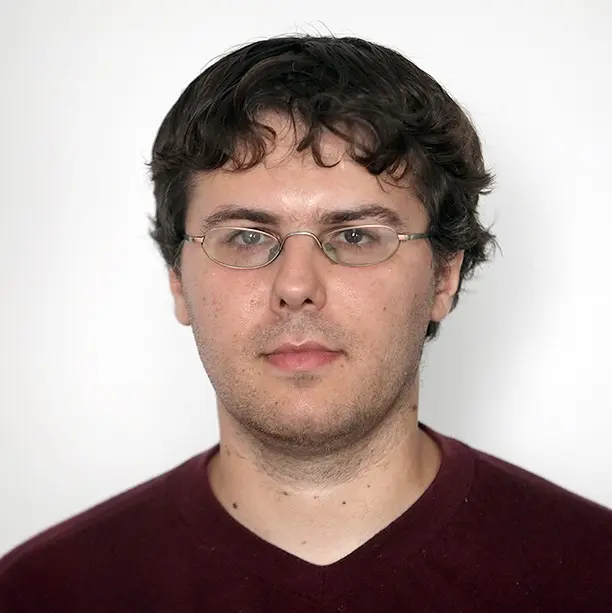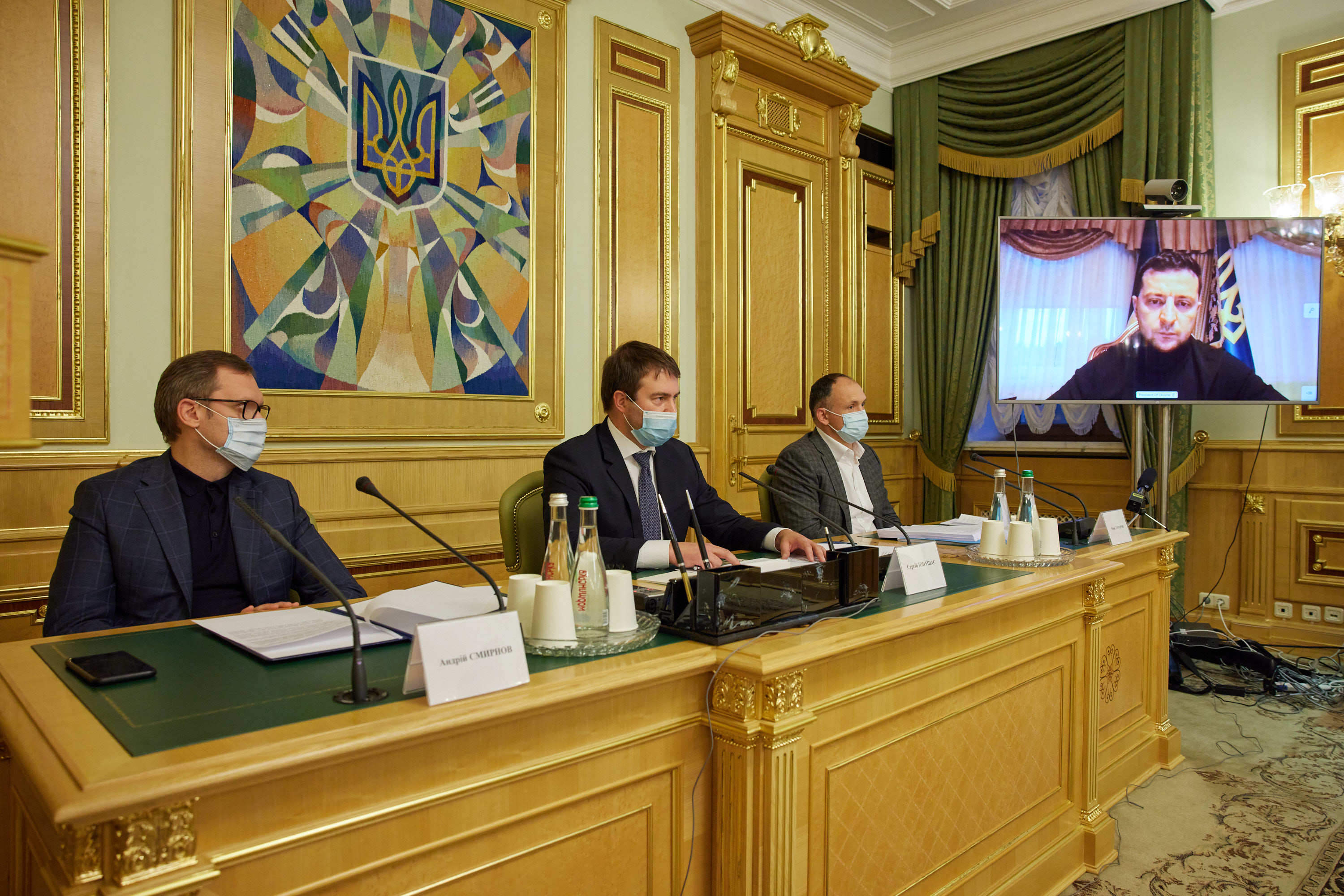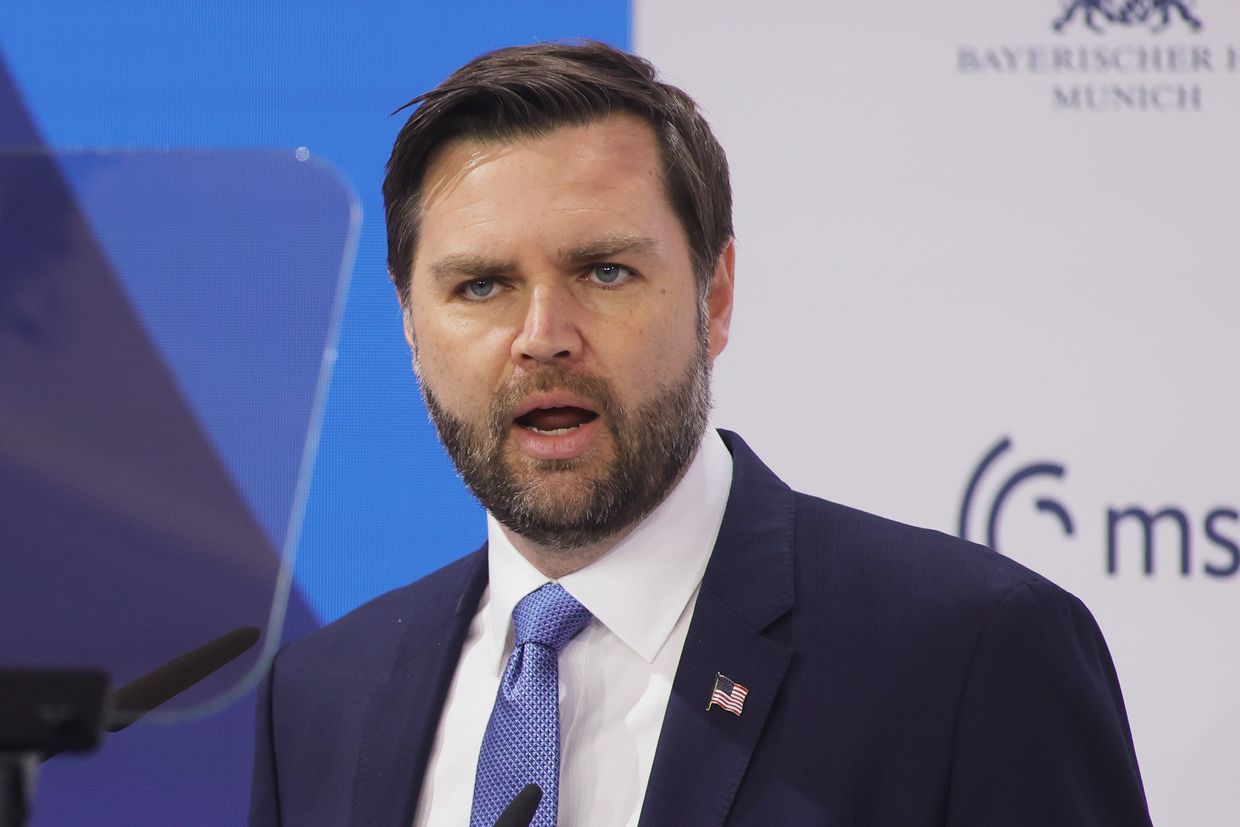Ukraine has had mixed results with its rule of law reforms in recent weeks.
On the one hand, a crucial judicial reform appears to be moving forward after years of delay.
On the other hand, the success of that reform is far from guaranteed. Moreover, President Volodymyr Zelensky has appointed 21 tainted judges and effectively abandoned plans to liquidate the infamous Kyiv District Administrative Court, headed by the nation’s most notorious judge Pavlo Vovk.
To add insult to injury, Zelensky has consistently protected his deputy chief of staff Oleh Tatarov, a bribery suspect, while the selection of a chief anti-corruption prosecutor has been sabotaged for many months.
The President's Office did not respond to requests for comment.
Judicial reform
Ukraine’s judicial reform, which has been blocked numerous times since 2019, appears to be making progress but obstacles abound.
The judiciary’s governing bodies — the High Council of Justice and the High Qualification Commission — are discredited because they have protected tainted judges. The previous High Qualification Commission was disbanded in 2019 but sabotage has prevented a new one from forming.
Both foreign experts and Ukrainian judges are supposed to take part in the creation of a new High Qualification Commission and in firing and hiring members of the High Council of Justice. Foreign experts will have a decisive role if the vote is split to guarantee that the process is independent from corrupt actors in Ukraine.
The latest judicial reform law was passed in July. For months, top judicial bodies delayed forming the Ethics Council, which initiates the process of hiring and firing High Council of Justice members. The Ethics Council was formed automatically on Nov. 9, as the law required.
On Dec. 1, the Ethics Council met for the first time and chose Lev Kishakevich, a Ukrainian judge, as its chairman and British judge Anthony Hooper as his deputy.
However, the Ethics Council’s rules of procedure pushed back the assessment of incumbent High Council of Justice members to Feb. 8, 2022. Before that, the Ethics Council will assess new candidates for the High Council of Justice.
DEJURE, a legal think tank, believes that this delay creates a great risk that discredited members of the council may avoid being fired indefinitely. This also means that discredited members of the High Council of Justice will be able to control and sabotage the selection of a new High Qualification Commission.
Another rule adopted by the Ethics Council is that at least one Ukrainian judge must be present at meetings, which may allow corrupt actors to block and postpone them by failing to attend.
There are other threats too. In October, the Supreme Court asked the Constitutional Court to review the judicial reform law, which may lead to its cancelation.
On Dec. 1, Zelensky also flouted hopes for judicial reform by appointing 21 judges who do not meet ethics and integrity standards, according to the Public Integrity Council, the judiciary’s state-sanctioned civic watchdog.
Vovk case
The most prominent example of Zelensky’s refusal to carry out genuine judicial reform is his treatment of Ukraine’s most infamous judge, Pavlo Vovk.
Vovk was charged by the National Anti-Corruption Bureau (NABU) twice – in 2019 with obstruction of justice and in 2020 with corruption.
Civil society sees him as the epitome of judicial corruption and impunity as he’s been audiotaped discussing corrupt deals. He has denied all allegations against him.
For two years, Zelensky completely failed to react to the Vovk case. After the judge's brother was charged with taking a $100,000 bribe as an intermediary for Vovk in April, Zelensky submitted an “urgent” bill to liquidate his court.
However, the supposedly “urgent” bill has been blocked for eight months by Zelensky’s party, which has a majority in parliament and is now effectively dead.
Zelensky claimed on Nov. 26 that if the bill had been adopted quickly, a separate bill on reforming the High Council of Justice and the High Qualification Commission would not have been passed. Zelensky didn’t explain the link between the two.
“This is like a chess game,” Zelensky said. “It’s difficult to carry out reforms, and one has to make some concessions.”
The Vovk cases have also been effectively destroyed by law enforcement.
Prosecutor General Iryna Venediktova, a Zelensky loyalist, has refused to authorize an arrest warrant for Vovk, fired her deputy who authorized the corruption charges against Vovk and rejected motions to search and wiretap the judge. Venediktova denied the accusations of sabotage.
In both the 2019 and 2020 Vovk cases, judges refused to extend the investigation, and prosecutors missed deadlines for sending them to trial. The NABU intended to send them to a court despite the missed deadline but courts have ruled that this is impossible.
Zelensky’s failure to liquidate Vovk’s court and his prosecutors’ failure to hold him responsible may have a political explanation. DEJURE believes that Vovk has been useful for serving the political interests of Zelensky’s administration.
A law enforcement source told Ukrainska Pravda in March that Vovk had met Zelensky in 2019 and persuaded him that he would work as part of the president’s team.
In 2019, Vovk and Zelensky’s ex-chief of staff Andriy Bohdan organized the dismissal of a Constitutional Court head, according to audiotapes published by the Slidstvo.Info investigative journalism project. Vovk also allegedly worked with Ruslan Riaboshapka, Zelensky’s former prosecutor general, to organize the dismissal of the Council of Judges chief, according to the tapes. Bohdan and Riaboshapka did not respond to requests for comment.
Anti-corruption prosecutor
Another litmus test for Ukraine’s commitment to anti-corruption reform is the selection of the chief anti-corruption prosecutor - a job that has been vacant since August 2020.
The chief anti-corruption prosecutor oversees all cases pursued by the NABU. The selection of an independent professional who is free from political influence has been a key requirement of Ukraine’s Western partners and donors.
The panel that chooses the prosecutor consists of four international experts and seven people chosen by parliament.
Since international experts vetoed a candidate favored by the President’s Office in June, pro-government panel members have disrupted numerous panel meetings by failing to attend. The latest one failed to take place on Dec. 2.
The Anti-Corruption Action Center believes the President’s Office is disrupting panel meetings because it does not want an independent prosecutor to be chosen. They also argue that the authorities aim to falsify the results of the selection process.
The sabotage prompted the Group of Seven (G7), on Dec. 2, to issue a statement in which they urged Ukraine not to delay the selection of the chief anti-corruption prosecutor. The international panel members also lambasted the delays in a Dec. 2 statement for the Kyiv Independent.
Only two candidates are left: NABU detective Oleksandr Klymenko and prosecutor Andriy Synyuk. Klymenko’s score is higher than Synyuk’s.
The Anti-Corruption Action Center has praised Klymenko for investigating top officials, including Zelensky’s deputy chief of staff Oleh Tatarov. Synyuk is a direct subordinate of Venediktova, which raises concerns about his independence.
On Oct. 28, Synyuk and Klymenko submitted a written assignment and must now pass the final interview.
Tatarov case
Zelensky’s promises to fight corruption also contrast with his consistent defense of his deputy chief of staff Tatarov, who was charged in 2020 with bribing a forensic expert. He has refused to fire or suspend him despite a petition for Tatarov’s dismissal collecting the required 25,000 signatures in June.
Back in 2020, the President’s Office claimed that Tatarov’s functions related to law enforcement had been suspended. However, Zelensky said on Nov. 26 that Tatarov keeps overseeing law enforcement. Asked whether there is a conflict of interest, Zelensky said “probably not.”
Tatarov's law enforcement oversight has reportedly dealt blows to key reforms: for example, Tatarov handpicked pro-government members of the selection panel for choosing the anti-corruption prosecutor, according to a May 13 report by Radio Free Europe/Radio Liberty’s investigative program Schemes. Tatarov did not respond to requests for comment.
The Tatarov case shows that law enforcement continues to turn a blind eye to the alleged crimes of presidential allies.
Venediktova blocked the charges against Tatarov in 2020 by replacing the group of prosecutors and then transferred the case from the NABU to the Security Service of Ukraine led by Zelensky’s childhood friend Ivan Bakanov.
In February, a court refused to extend the Tatarov investigation, and Venediktova’s prosecutors effectively killed it by missing the deadline for sending it to trial. However, the Tatarov case has not been closed yet, and he formally remains a suspect.
“This history with criminal cases is over,” Zelensky said on Nov. 26. “I’m not paying attention to this.”
The appointment of Tatarov, who was a top official under pro-Kremlin ex-President Viktor Yanukovych, to Zelensky’s administration in 2020, was itself illegal. The 2014 lustration law forbids the appointment of top Yanukovych-era officials for 10 years.
What’s ahead?
All of this shows that the Zelensky administration is not committed to anti-corruption reforms and has little desire to introduce the rule of law.
Like previous governments, the incumbent administration is interested in protecting its own top members from prosecution and in retaining a politically subservient law enforcement system.
The influence of the West, including the threat of revoking visa-free travel with Europe due to the sabotage of reforms and canceling financial aid, remains crucial for carrying out anti-corruption legislation. The International Monetary Fund disbursed a $700 million tranche to Ukraine in November but remains committed to demanding key reforms from Ukraine.
The impact of civil society and independent media is also crucial: it helps to inform the West about the true state of reforms.
Much depends on how robust the reaction of the West and Ukraine’s civil society will be in the future.













